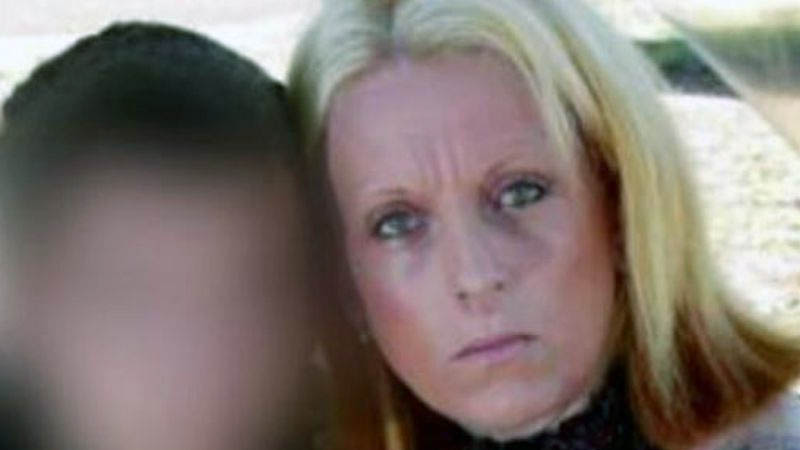Rebecca Payne’s Startling Sentence for the Murder of her Abusive Husband Sends Shockwaves through Regional Australia

“Guilty,” declared the jury at the Supreme Court in regional Victoria, Australia, delivering a verdict that would forever change the life of Rebecca Payne, a 43-year-old mother-of-six. With a jail term of up to 16 years, she was sentenced for the murder of her abusive husband, Noel Payne. The perplexing details of the case left the courtroom buzzing with disbelief.
In a twist of calculated vengeance, Rebecca Payne had laced the homemade lemon biscuits she served to her husband in September 2020 with a lethal dose of Temazepam, a deadly ingredient hidden within the innocent icing. As if that wasn’t enough, she handed him a cup of hot Milo, a popular chocolate drink in Australia, unwittingly sealing his fate as he succumbed to unconsciousness.
The harrowing courtroom proceedings exposed a chilling backstory of years riddled with physical, emotional, and sexual abuse inflicted upon Rebecca Payne by her late husband. The extent of Noel Payne’s control was laid bare, as he isolated her from her loved ones, cruelly denying her attendance at her own son’s funeral.
One particular incident recounted during the trial sent shockwaves through the courtroom. In a fit of rage over finances, Noel Payne dragged Rebecca to a cemetery, where he unleashed a savage assault, mercilessly yanking her hair, delivering ruthless kicks to her ribs, and even spitting on her defenseless form as she lay helplessly on the ground. The murder itself was followed by a disturbing act, as Rebecca Payne wrapped her husband’s lifeless body in a blanket and secretively stashed it away in a chest freezer nestled within the confines of their backyard in the town of Walpeup.
Supreme Court Justice Rita Incerti, struggling to find words that could capture the magnitude of Rebecca Payne’s agony, expressed that the depth of abuse endured by Rebecca Payne was “so depraved and distressing that it is difficult to capture the horror of such abuse with words.” The controlling and coercive behaviors inflicted upon her by Noel Payne were brought to light, including his insidious restrictions on basic daily activities such as showering, taking solitary walks, or even collecting the mail without his omnipresent gaze.
To solidify his dominance, Noel forced Rebecca to bear his name on her body, a chilling display of his control manifested through 18 tattoos. It was revealed that Rebecca had made previous attempts to escape her tormentor in 2007 and 2012, but court orders ruthlessly prevented her from taking her own children, adding to the unbearable weight of her circumstances. Justice Incerti acknowledged the intolerable and inescapable reality in which Rebecca Payne existed.
Considering the web of control spun around her by her husband, coupled with the court orders that restricted her access to her beloved children, her dire financial situation, and the remote isolation in which she resided during the tumultuous times of COVID-19 lockdowns, Justice Incerti concluded that Rebecca Payne had been trapped with no realistic means of escape.
While acknowledging the need for compassion and mercy in Rebecca’s case, Justice Incerti emphasized that the taking of her husband’s life had occurred without her being under direct threat at the time of the fatal incident. The courtroom reverberated with a mix of shock and sympathy as the complex layers of the case were laid bare.
With credit for the time she had already served, Rebecca Payne would become eligible for release in slightly over seven years. Her son, Jamie, expressed his profound lack of awareness regarding the extent of his mother’s suffering, sharing his anticipation for the day their family would reunite upon her release. “If I felt like I could have done something years ago, I would have done it,” he emotionally declared, underscoring the profound impact of the hidden torment endured by his mother.
As the echoes of the courtroom’s bewildering proceedings reverberated far and wide, the case of Rebecca Payne served as a somber reminder of the complex dynamics of abuse, the lengths one may go to escape it, and the murky realm where justice and mercy intertwine in the quest to untangle the intricacies of human suffering and survival.